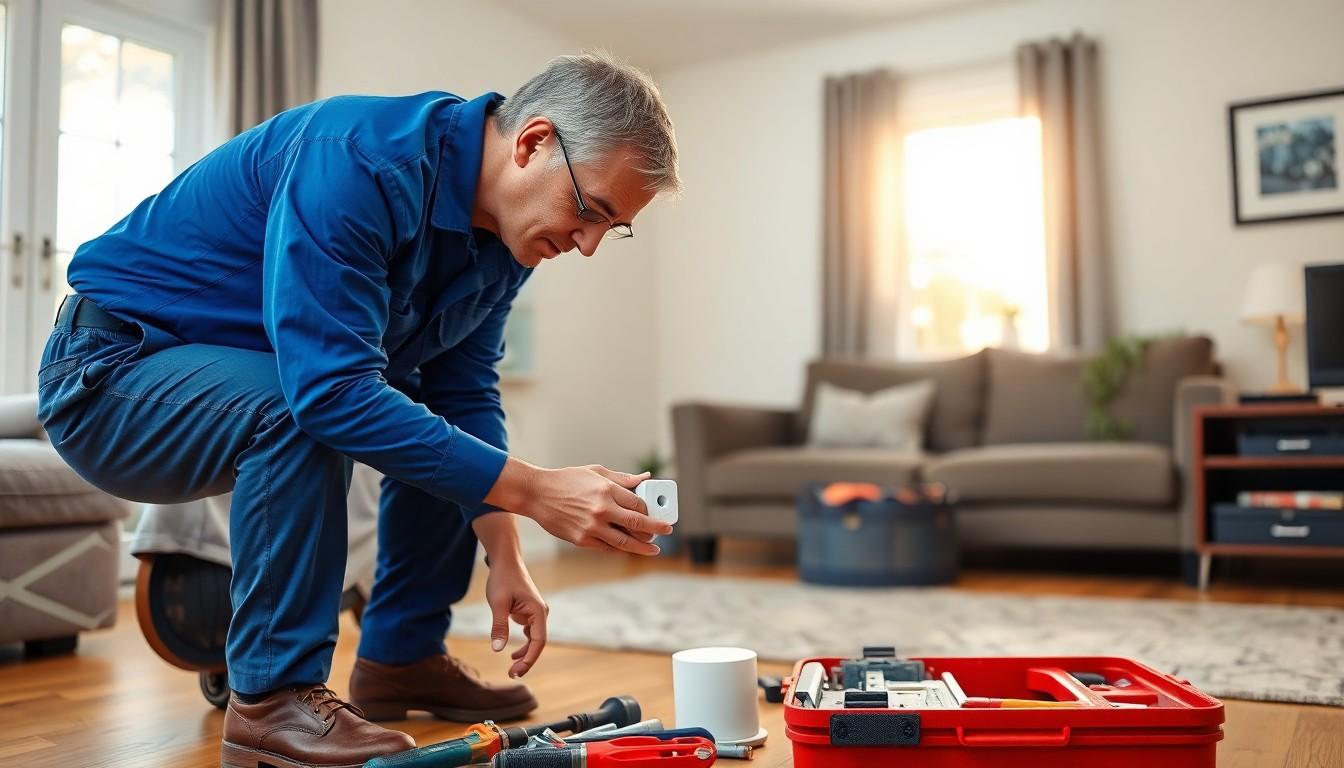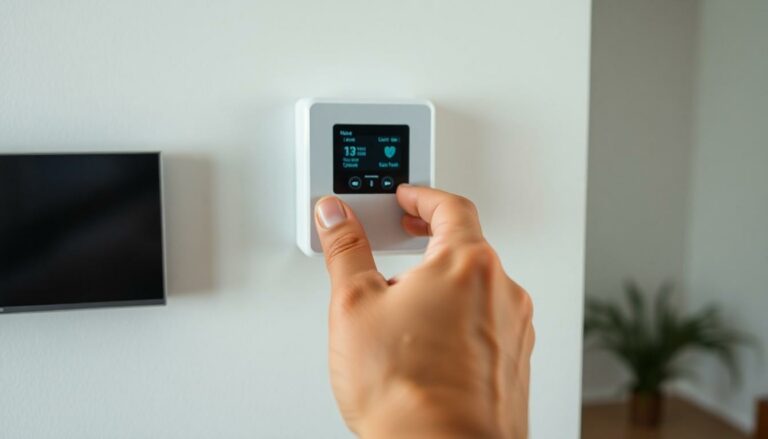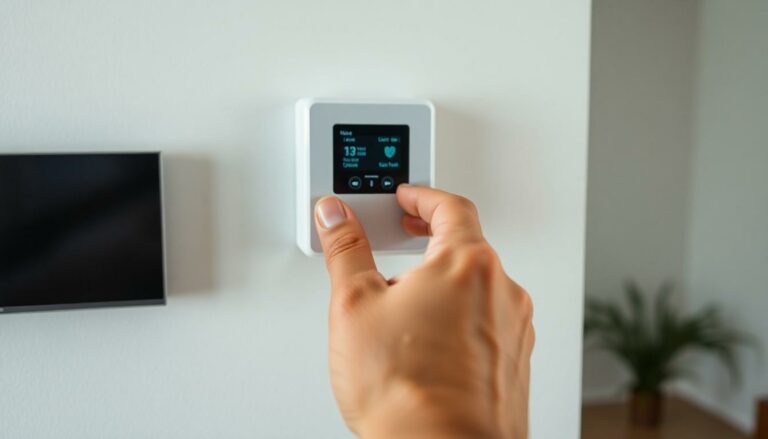Home sweet home should feel safe and sound, but what happens when that trusty alarm system decides to play hide and seek? It’s like having a guard dog that suddenly thinks it’s a cat—unpredictable and downright frustrating. Whether it’s a pesky false alarm or a system that’s gone completely mute, home alarm repair is the unsung hero of home security, saving the day one beep at a time.
Ignoring those warning signs can lead to more than just an annoying chirp. A malfunctioning alarm could leave a home vulnerable, making it essential to tackle repairs head-on. With a little know-how and a dash of humor, getting that alarm back in tip-top shape can be a breeze. Let’s dive into the world of home alarm repair and discover how to keep that security system as reliable as your favorite sitcom rerun.
Table of Contents
ToggleUnderstanding Home Alarm Systems
Home alarm systems play a crucial role in maintaining security. Different types cater to varying needs and offer unique features.
Types of Home Alarm Systems
Wired systems use physical connections for communication, providing stability. Wireless systems, on the other hand, rely on radio signals, allowing for easier installation. Monitored systems connect to professional monitoring services, ensuring rapid response during emergencies. Unmonitored systems, though less expensive, require the homeowner to take action during alarms. Many homeowners also opt for smart systems that integrate with smartphones, promoting convenience. Each type of system presents distinct advantages, depending on user preferences and requirements.
Common Issues Faced
False alarms frequently frustrate users, often resulting from improper sensor placement or environmental interference. Battery failure commonly leads to systems becoming inoperative, emphasizing the need for regular maintenance. Sensor malfunctions can occur, rendering individual components unresponsive. Connection issues between wired components may disrupt the entire system, causing alarm failure. Additionally, users sometimes encounter software glitches in smart systems, impacting ease of use. Regular checks and timely repairs minimize these problems, contributing to the overall reliability of home alarm systems.
Signs Your Home Alarm Needs Repair

Unexpected behavior from a home alarm system can indicate a need for repair. Recognizing these signs early enhances home security and prevents potential issues.
Frequent False Alarms
Frequent false alarms disrupt daily life and cause frustration. These alarms not only annoy homeowners but also may desensitize neighbors and reduce the perceived seriousness of a real emergency. If an alarm triggers without clear reasons, it’s crucial to investigate the underlying cause. Common culprits include faulty sensors and outdated software. In some cases, low batteries can lead to erratic behavior. Correcting the root problem ensures reliability and peace of mind.
System Malfunctions
Malfunctioning home alarm systems can compromise safety. Systems failing to respond to triggers or notifications may leave properties vulnerable. If alarms don’t activate during a break-in or fail to notify the monitoring service, immediate attention is necessary. Software glitches often create connectivity issues, while wear and tear may affect hardware components. Regular checks can identify these problems early. Addressing malfunctions quickly reinforces the system’s dependability and effectiveness.
DIY Home Alarm Repair Tips
Addressing home alarm issues can enhance security effectiveness. Follow these tips for a smoother repair process.
Basic Troubleshooting Techniques
Check battery status first to resolve most power-related problems. Replace low batteries promptly, as they often trigger false alarms. Verify sensor alignment next; misaligned sensors may cause malfunction. Inspect cables for visible damage, which could disrupt communication between components. Lastly, reset the alarm system according to the manufacturer’s instructions. This step sometimes restores functionality for minor glitches.
When to Seek Professional Help
Consider professional help when troubleshooting doesn’t yield results. Continuous false alarms indicate deeper issues requiring expert assessment. Frequent disconnections from the monitoring service suggest potential wiring problems that need specialized attention. Call a technician if the alarm fails to respond to signs of intrusion or when sensors consistently malfunction. Relying on professional expertise ensures comprehensive evaluation and repair for the alarm system, enhancing overall home security.
Choosing a Home Alarm Repair Service
Selecting a reliable home alarm repair service involves careful consideration of various factors and asking the right questions.
Factors to Consider
Experience matters significantly. Look for companies with a proven track record in alarm systems. Reputation counts, too; check online reviews and testimonials from previous clients. Services offered should match specific needs, including emergency repairs or regular maintenance. Ensure technicians are certified and knowledgeable about different alarm systems, especially the type installed at home. Also, consider response times for emergency situations; quick turnarounds can enhance safety. Pricing structures can vary, so obtaining quotes beforehand helps in budgeting effectively.
Questions to Ask Before Hiring
What kind of warranty does the service provide? Inquiring about warranties ensures peace of mind regarding repairs. How quickly can they respond to emergencies? Prompt responses can make a considerable difference during urgent situations. Ask about their familiarity with specific alarm brands; expertise in known systems can facilitate efficient repairs. Does the company offer support beyond repairs? Extended customer service can enhance overall satisfaction. Finally, what are the payment options available? Understanding costs upfront leads to a smoother transaction process.
Preventative Maintenance for Home Alarms
Routine maintenance significantly boosts a home alarm system’s reliability. By undertaking regular checks, homeowners can identify potential problems early.
Regular System Check-Ups
Conducting system check-ups every six months ensures optimal performance. During these inspections, verify battery conditions and sensor functionality. Monitor alert settings for any discrepancies. Testing alarm signals increases confidence in emergency responsiveness. Inspect cabling for wear or damage, as exposed cables can hinder effective communication. Keeping a log of these inspections helps track performance over time.
Upgrading Your Alarm System
Consider upgrading your alarm system if it’s outdated or frequently malfunctions. Newer models offer improved technology, such as better motion detection and smartphone integration. Enhanced features, like remote monitoring, provide additional security. Evaluate user reviews and consult with professionals to assess upgrades. Investing in updated systems can yield better protection and peace of mind. Prioritize maintaining compatibility with home automation systems to maximize efficiency and convenience.
Maintaining a reliable home alarm system is essential for ensuring safety and peace of mind. By addressing repair issues promptly and conducting regular maintenance checks, homeowners can significantly enhance the effectiveness of their security systems. Understanding the common problems and knowing when to seek professional help are key steps in safeguarding one’s home.
Investing in a dependable repair service ensures that alarm systems function optimally and respond effectively to emergencies. With the right approach and a commitment to regular upkeep, homeowners can enjoy the benefits of a secure living environment, allowing them to focus on what truly matters.




